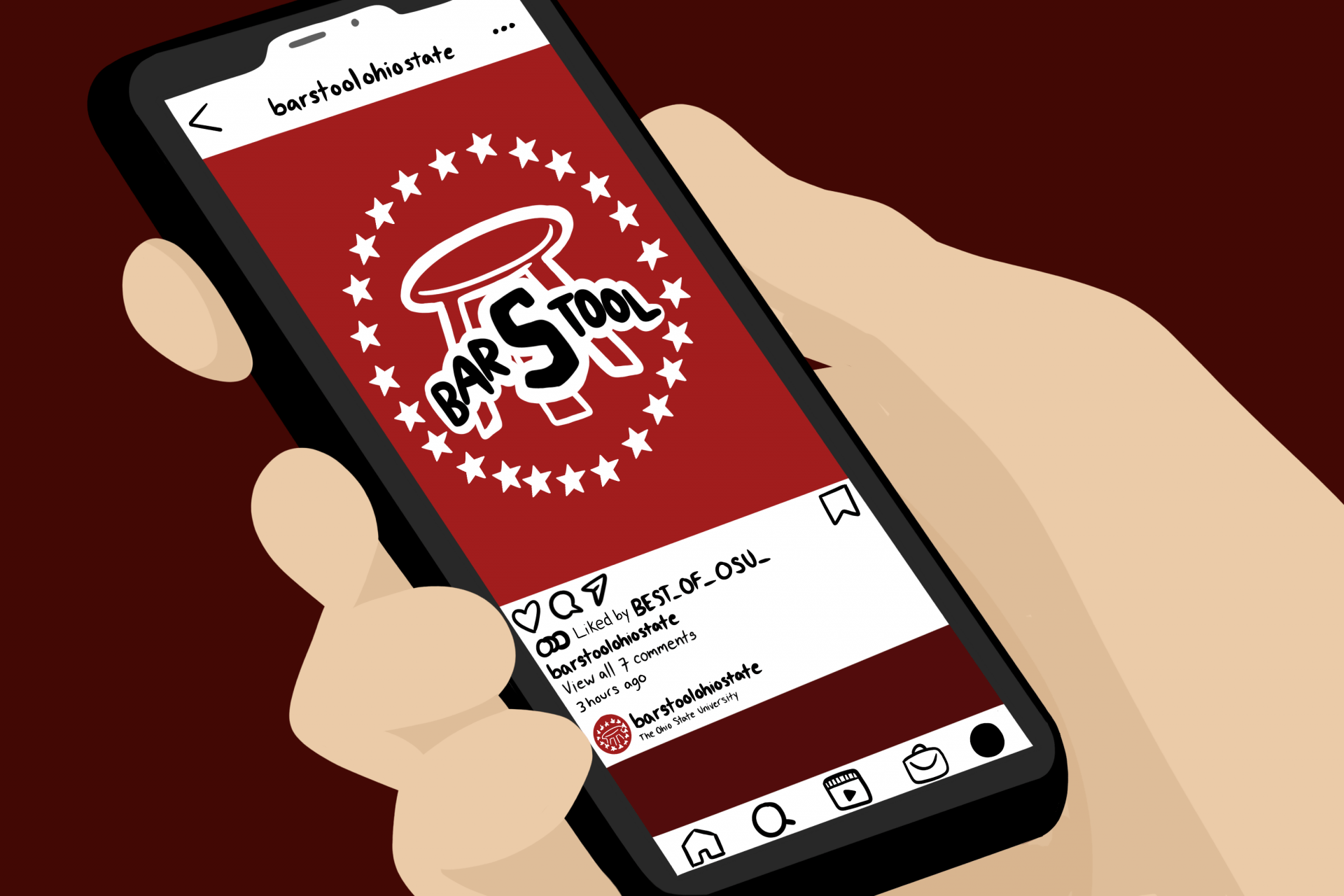
Founded in 2003 by internet sensation David Portnoy, Barstool Sports began as a print publication and has since moved entirely online. Credit: Marcy Paredes | Managing Editor for Design
From creating trend-worthy memes to commenting on Urban Meyer’s 0-4 NFL debut, Barstool Sports is a social media phenomenon.
Founded in 2003 by internet sensation David Portnoy, Barstool Sports began as a print publication and has since moved entirely online. In 2016, they took the leap into college sports — a leap that has since paid off tenfold, Caleb Griffin, graduate student and Barstool OSU manager, said.
“Five years ago, they started a college program, and Ohio State was one of the first initial [schools], with Penn State being the first,” Griffin said. “They weren’t sure how it was going to do, but it blew up across the country, so I believe over a thousand viceroys and around 40 schools represented.”
Griffin and Jackson Haskins, a fourth-year in biomedical engineering, are a part of the five-person team that runs the brand at Ohio State. Boasting over 117,000 followers on Instagram, 94,200 on Twitter and 41,900 on TikTok, Barstool’s presence at Ohio State has boomed, growing on Instagram by 83 percent since the current team took over in 2018, and voted best Ohio State-related social media by readers of The Lantern.
“When we took over, we started doing pretty regular content, and that was enough to really bolster the brands to move forward,” Griffin said. “We were the first major social media push that was a very brutally honest student perspective of the campus.”
The student perspective is key to making Barstool what it is. Griffin and Haskins both said the Barstool OSU accounts have succeeded because almost every Ohio State student can find something to laugh at on their feed.
“Since we have a national brand and a lot of the big faces of Barstool HQ are grown adults, a lot of people don’t understand that the Barstool OSU accounts are controlled by students,” Haskins said. “So we relate to our fans, our fans relate to us, all the content is relatable.”
With content ranging from football highlights and jabs at opponents to shenanigans of intoxicated students, Barstool OSU has become a fan-favorite of many students. Unique to this year are the food robots roaming around campus, which Barstool OSU has taken full advantage of, creating posts about them that often receive anywhere from 5,000-9,000 likes on Instagram.
However, Griffin and Haskins said they realize their large platform is influential beyond posting outtakes from game day. After last year’s “Chitt Fest” ended with totaled cars, Barstool OSU helped spread a GoFundMe page to assist those affected.
This year, they have used their accounts to broaden awareness about safety concerns on and around campus, sharing posts commenting on campus safety notices and, Tuesday, an open letter from the mother of Chase Meola — a fifth-year in marketing who was shot and killed outside the Phi Kappa Psi fraternity house in October 2020 — urging students and parents to peacefully protest for a safer environment for students on and off campus.
“We’re all Buckeyes, so it really matters that our campus returns to the way it was and that people can feel safe walking home and people can feel safe going to their friends’ apartments at night,” Griffin said.
Barstool OSU also hopes to increase its work with athletes at the university. Thanks to new rules regarding athlete’s name, image and likeness, fans could see stars from Ohio State athletics working alongside Barstool OSU, Haskins said.
“What we’re really excited for is, hopefully, once we let the NIL stuff simmer a little bit more, creating content with different athletes on campus,” Haskins said. “Basically helping by using our platform to help bring the lighter side to our fans and allow the athletes to show themselves as not just numbers on the field, but as people.”
As Barstool OSU continues to evolve, Griffin and Haskins said they hope one thing remains true — their relation to students. With each class that comes to Ohio State, they hope to continue the tradition of being a student-favorite and providing laughs to their viewers.
“I think that really we are just a relief and a distraction and in a lot of ways, a joust on the humor and a more friendly look at sports,” Griffin said. “We’re trying to use our accounts to do important things such as raise awareness, and that’s something we’d definitely like to do more of in the future, but I think it’s just an honest, funny laugh at campus culture.”


